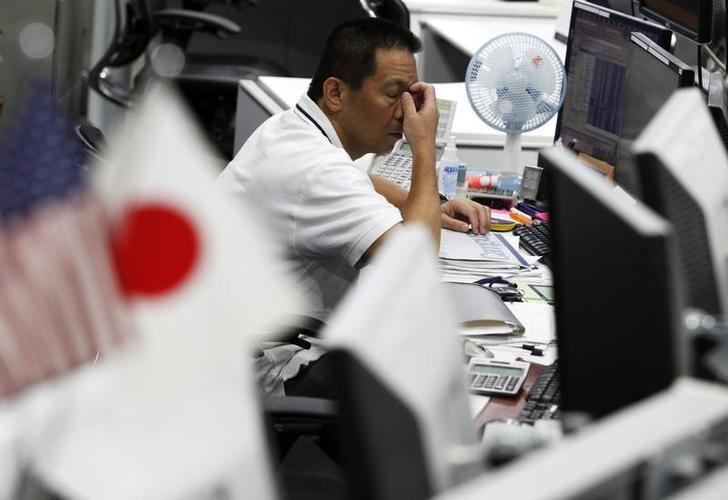
Japan has dethroned China to become the world's second-largest stock market. After the economic slump witnessed on Thursday, the Chinese equity market is now worth $6.09 trillion compared to Japan's $6.17 trillion. The United States is the largest stock market worth $31 trillion.
China overtook Japan and soared to $10 trillion, its highest ever figure in June 2015. However, Chinese currency and equities have been hit hard this year following the trade spat with the USand the efforts by the government to check a slowing economy and cut debt.
"The damage caused by the trade war with the US is the prime reason for China losing its ranking," Banny Lam, head of research at CEB International Investment Corp told Bloomberg. He added that the Japan equity gauge is more stable around the current level but China's market cap has slumped from its peak this year.
The Shanghai Composite Index was one of the worst performers in the world this year after losing 17%. The tech and industrial stocks are among China's worst performers.
China's politburo, a body of 25 senior most leaders of the Communist Party, issued a communiqué asking policy-makers to focus on reviving economic growth amid trade standoff and the debt crisis. However, this did not seem to have an effect as the Shanghai Composite Index suffered its worst week since early February.
Linus Yip, a strategist with First Shanghai Securities Ltd, told Bloomberg that for the next two months, the market will continue to hover at low levels.
"There is a chance the stock market will recover and regain the second spot as the fundamentals are still stable and the growth momentum will revive," Yip said. China's role in the global financial market doesn't match its economic muscle.
Policy makers have said that they would remove limits to encourage investment in industries from banking to agriculture but the foreign ownership of equities and bonds are still low.
Japan's benchmark Topix index has declined more than 4% in 2018, but it remains to be one of the best-performing markets in Asia amid robust earnings growth reported by companies and support from Bank of Japan's ETF purchases. Nearly 60% of the companies listed have reported strong earnings which have beaten expectations.
Yuan slid more than 8% compared to the dollar in the last six months and there aren't many signs that the country's central bank is intervening in the currency market. Yuan is facing the longest retreat since the start of China's modern foreign exchange rate regime in 1994.








